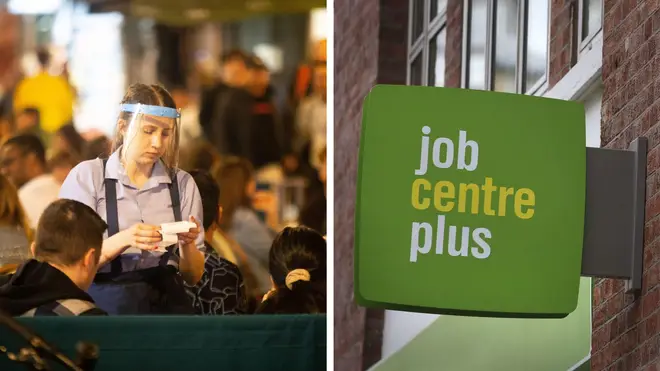
Paul Brand 10am - 12pm
30 September 2021, 06:24 | Updated: 30 September 2021, 06:54

The government's furlough scheme comes to an end today, leading to fears of uncertainty for almost a million workers and a wave of unemployment.
The job retention programme has supported the wages of 11.6 million people through the pandemic, at a cost of 70 billion pounds.
Rishi Sunak's scheme has been widely praised by both workers and employees as a "lifeline" during the crisis, however economists are warning a rise in unemployment's likely as it comes to an end.
According to the latest Office for National Statistics (ONS) almost a million people were thought to still be receiving support through the financial scheme at the end of September.
Alan Custis, head of UK equities at Lazard Asset Management, said the rate of unemployment, which dropped to 4.6% last month, is likely to swing higher again.
"There will also be a percentage who choose retirement over returning to work, but we would expect the unemployment rate to settle at around 5% for the year end, before falling in 2022," he said.
Read more: Furlough scheme starts winding down amid warnings over UK's recovery
Read more: Number of people on furlough lowest since pandemic began

Bank of England on ending furlough: 'It may require a few pay rises.'
Mr Custis added that other countries, such as the US and Australia, saw unemployment spikes when similar financial support for workers came to an end.
Mike Wilmot - from the Tyne Theatre in Newcastle - said he is grateful for what the furlough scheme has done for the arts sector.
He told LBC: "It was survival for us really."
There have been continued calls for the government to continue its support for workers after the furlough scheme comes to an end.
Read more: 'Many thousands' of redundancies predicted as furlough tapers off
On Thursday, the government announced a new scheme - the Household Support Fund - which will see vulnerable households across the country being able to access a new £500m support fund to help them with essentials over the coming months.
The new fund will support millions of households in England and will be distributed by councils, who know their local areas best and can directly help those who need it most, including for example, through small grants to meet daily needs such as food, clothing, and utilities.
Cash will be made available to Local Authorities in October 2021.
Chancellor of the Exchequer, Rishi Sunak said: “Everyone should be able to afford the essentials, and we are committed to ensuring that is the case.
“Our new Household Support Fund will provide a lifeline for those at risk of struggling to keep up with their bills over the winter, adding to the support the government is already providing to help people with the cost of living.”
The government said the new fund will run over winter and those in need of support should contact their local council who will help them access support.

Caller's anxiety and depression come from furlough
Kate Nicholls, chief executive of UKHospitality, said: "With businesses currently experiencing a record number of vacancies, our hope is that those seeking employment will consider the varied and exciting opportunities a career in hospitality offers.
"With the right support and conditions, the sector has the potential to be at the forefront of the economic recovery.
"In order to drive further job creation, we urge Government to implement a long-overdue reform of business rates and a permanently lower rate of VAT for hospitality and tourism in order to help fragile businesses back on their feet."
As the scheme comes to a close, the UK had record vacancy figures.
Office for National Statistics data for August reported more than one million available jobs for the first time on record.
There have also been significant hiring sprees amid shortages of lorry drivers, warehouse staff and food production workers.